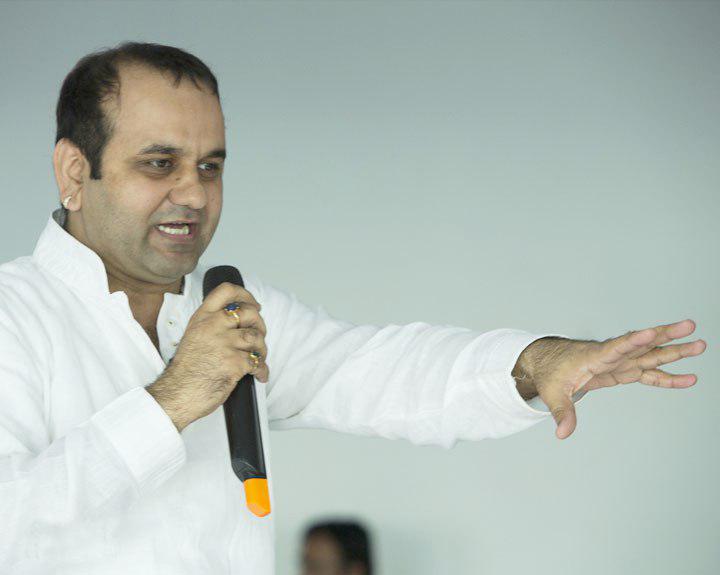The Right To Education (RTE) Act of 2009 is among the most well-known instances of the inherent and systemic discrimination perpetrated by rule of law against India’s majority community. This act, and another clause that was added to Article 15 of the Constitution through the 93rd constitutional amendment, are essential parts of UPA’s legacy, and caused much grief and anger among the Hindus. Hindus erupted in joy earlier this week when BJP’s MP from East Delhi, Mr. Maheish Girri, introduced a private member’s bill to amend the clause in question.
To fathom the significance of this move, one must understand the complex constitutional web set in place by the Congress Party. This web creates a conducive environment for minority communities to flourish and stunts development within the majority community.
The RTE came about in 2009 under the Manmohan Singh government. It mandated that all private schools, irrespective of whether they were aided or unaided, had to set aside 25% of their seats for economically weaker sections.
However, the idea of every school without any discrimination whatsoever falling under the purview of this rule which obligated affirmative action (reservation for the supposedly backward), was hogwash right from the start. In 2005, four years before the RTE came about and just after the Congress Party stormed to power, Clause 5 was added to Article 15 through the 93rd constitutional amendment. Article 15 prohibits discrimination on several grounds, religion being one of them. Clause 5 which was added states:
“Nothing in this article or in sub-clause (g) of clause (1) of article 19 shall prevent the State from making any special provision, by law, for the advancement of any socially and educationally backward classes of citizens or for the Scheduled Castes or the Scheduled Tribes in so far as such special provisions relate to their admission to educational institutions including private educational institutions, whether aided or unaided by the State, other than the minority educational institutions referred to in clause (1) of article 30.”
The last phrase of the clause, “… other than the minority educational institutions…” exempted minority educational institutions from falling within the purview of compulsory affirmative action before the RTE Act even came into existence! In retrospect, it looks as if the government of the day set the trap four years in advance, and shepherded an unsuspecting majority community right into it.
But this is only half the story. Clause 1 of Article 3 of the Constitution states: “All minorities, whether based on religion or language, shall have the right to establish and administer educational institutions of their choice.” Due to the vague nature of the article, its liberal interpretation may be quite damaging.
Maheish Girri’s private member bill seeks to amend Clause 5 of Article 15 that the Manmohan Singh government added in 2005. He will face several obstacles on his quest. The first and most obvious one is the parliamentary obstacle. Most private member bills that are introduced lapse without a single debate, but let us envisage a scenario that doesn’t allow this one to lapse. This bill by its very nature is a constitutional amendment, and will require a majority in both houses of parliament. If the bill makes it to the upper house where the BJP doesn’t command a majority, the minority-appeasing opposition ranks aren’t likely to allow its passage.
If the BJP arm-twists the opposition and manages to go past the halfway mark in the upper house, it will face a legal hurdle. The amended Clause 5 of Article 15 may be perceived by a court of law as an infringement upon the rights guaranteed by Clause 1 of Article 3. This of course arises only if latter is interpreted in the most liberal way.
Maheish Girri’s private member bill is the first indication that the BJP is willing to take the RTE issue up.
However strongly the odds are stacked up against it, propelling it into the national limelight and putting the opposition under pressure might yield the desired result. However, the battle will be long and hard, and perhaps it is unwise to raise our hopes at this juncture.
If the party is firmly behind their MP and seeks to get rid of this blatant systemic injustice, there are other measure it can take. One of the long-standing proposals with the education ministry has been to set up a separate Vedic or Dharmic education board. The education such a board would offer would have strong cultural and nationalist values as its basis, and would be the ideal counter to the dubious minority-run institutions which have mushroomed across the country through the years. Moreover, if this board can be inherently exempt of the legislations which crippled majority-run institutions, perhaps other institutions which face the wrath of the RTE Act could transition to the new framework.
The significance of Maheish Girri introducing the bill to amend the RTE Act is that for the first time, there is hope. Unlike in the past, the excitement and optimism isn’t wishful thinking. The minority card allowing people to get away with any illogical whim of theirs defies secularism in its true sense. The majority community doesn’t deserve to suffer because the erstwhile blood-sucking political class attempted to cultivate a vote-bank. Maheish Girri’s bill is an excellent start, but the country needs many more Maheish Girris in every domain that unnecessarily discriminates against the Hindus.
